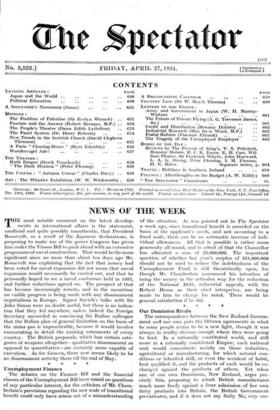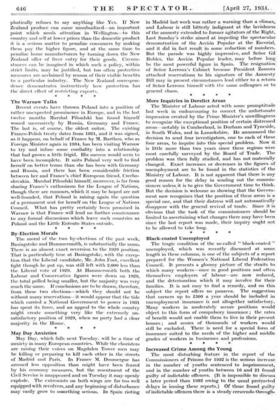Our Dominion Rivals The correspondence between the New Zealand Govern-
ment and our own puts the Ottawa agreements in what to some people seems to be a new light, though it was always in reality obvious enough where they were going to lead. In a rationally constituted world, and still more in a rationally constituted Empire, each national unit would concentrate mainly on those industries, agricultural or manufacturing, for which natural con- ditions or inherited skill, or even the accident of habit, best qualified it, and the products of each would be ex- changed against the products of others. Yet when one of our own Dominions, New Zealand, urges pre- cisely this, proposing to admit British manufactures much more freely against a freer admission of het-own dairy products into Britain, the British Government prevaricates, and if it does not say flatly No, very em- phatically refuses to say anything like Yes. If New Zealand produce can come unsubsidized—an important point which needs attention in Wellington—to this country and sell at lower prices than the domestic product it is a serious matter to penalize consumers by making them pay the higher figure, and at the same time to penalize home manufacturers by turning• down the New Zealand offer of freer entry for their goods. Circum- stances can be imagined in which such a policy, within strict limits, may be justified, but too often protective measures are acclaimed by reason of their visible benefits to a particular industry. The New Zealand correspon- dence demonstrates instructively how protection has the direct effect of restricting exports.













































 Previous page
Previous page